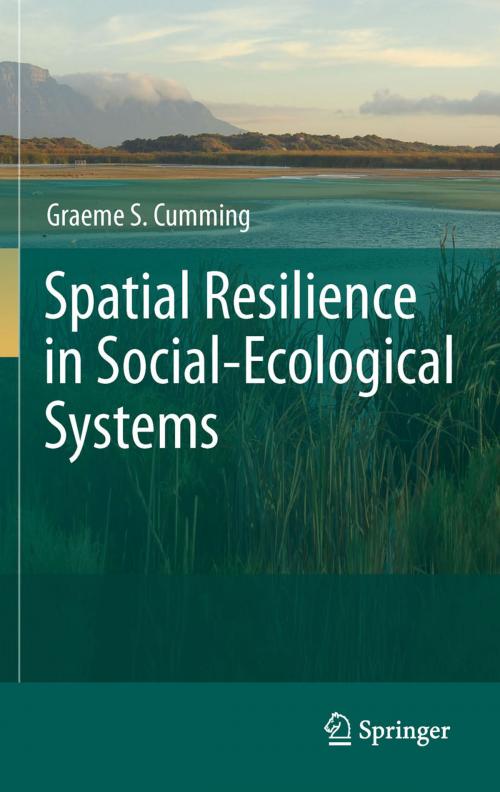Spatial Resilience in Social-Ecological Systems
Nonfiction, Science & Nature, Science, Biological Sciences, Ecology, Social & Cultural Studies, Social Science, Sociology| Author: | Graeme S. Cumming | ISBN: | 9789400703070 |
| Publisher: | Springer Netherlands | Publication: | February 9, 2011 |
| Imprint: | Springer | Language: | English |
| Author: | Graeme S. Cumming |
| ISBN: | 9789400703070 |
| Publisher: | Springer Netherlands |
| Publication: | February 9, 2011 |
| Imprint: | Springer |
| Language: | English |
Spatial Resilience is a new and exciting area of interdisciplinary research. It focuses on the influence of spatial variation – including such things as spatial location, context, connectivity, and dispersal – on the resilience of complex systems, and on the roles that resilience and self-organization play in generating spatial variation. Prof. Cumming provides a readable introduction and a first comprehensive synthesis covering the core concepts and applications of spatial resilience to the study of social-ecological systems. The book follows a trajectory from concepts through models, methods, and case study analysis before revisiting the central problems in the further conceptual development of the field. In the process, the author ranges from the movements of lions in northern Zimbabwe to the urban jungles of Europe, and from the collapse of past societies to the social impacts of modern conflict. The many case studies and examples discussed in the book show how the concept of spatial resilience can generate valuable insights into the spatial dynamics of social-ecological systems and contribute to solving some of the most pressing problems of our time. Although it has been written primarily for students, this book will provide fascinating reading for interdisciplinary scientists at all career stages as well as for the interested public.
"Graeme Cumming, central in the development of resilience thinking and theory, has produced a wonderful book on spatial resilience, the first ever on this topic. The book will become a shining star, a classic in the explosion of new ideas and approaches to studying and understanding social-ecological systems." Carl Folke, Stockholm Resilience Centre, Sweden
Spatial Resilience is a new and exciting area of interdisciplinary research. It focuses on the influence of spatial variation – including such things as spatial location, context, connectivity, and dispersal – on the resilience of complex systems, and on the roles that resilience and self-organization play in generating spatial variation. Prof. Cumming provides a readable introduction and a first comprehensive synthesis covering the core concepts and applications of spatial resilience to the study of social-ecological systems. The book follows a trajectory from concepts through models, methods, and case study analysis before revisiting the central problems in the further conceptual development of the field. In the process, the author ranges from the movements of lions in northern Zimbabwe to the urban jungles of Europe, and from the collapse of past societies to the social impacts of modern conflict. The many case studies and examples discussed in the book show how the concept of spatial resilience can generate valuable insights into the spatial dynamics of social-ecological systems and contribute to solving some of the most pressing problems of our time. Although it has been written primarily for students, this book will provide fascinating reading for interdisciplinary scientists at all career stages as well as for the interested public.
"Graeme Cumming, central in the development of resilience thinking and theory, has produced a wonderful book on spatial resilience, the first ever on this topic. The book will become a shining star, a classic in the explosion of new ideas and approaches to studying and understanding social-ecological systems." Carl Folke, Stockholm Resilience Centre, Sweden















